Peruvian Coffee Organic Coffee Identification: several major certification institutions for organic coffee
For professional baristas, please follow the coffee workshop (Wechat official account cafe_style)
Peruvian Zen Tea Ma you
Most Peruvian coffee is organic, mainly on small-scale farms, mostly grown at the foot of the Andes. Peru, with mountains accounting for 1% of the country's total area, belongs to a tropical desert region with a dry and mild climate. The average annual precipitation of 18-26 ℃ is mild 700~1500mm, which makes it rich in high-quality coffee. Peruvian coffee is made up of 100% Arabica varieties, which is famous for its fresh cheese and caramel aromas, sweet aftertaste and soft taste. Thanks to the investment in organic farming equipment and technology of some import and export enterprises, Peruvian coffee has won the organic farming certification of the International Organic crop Development Association (CCIA) of the United States. Peru has become a representative producer of organic farmers' coffee. Peruvian coffee is not well known in the coffee market, but its unique taste is loved by more and more enthusiasts, making Peruvian coffee one of the indispensable emerging producing areas in South America.
Zen tea Mayou, famous for producing the best quality coffee in Peru and growing under natural conditions, is absolutely organic coffee. The coffee of Mayou, a Zen tea, is generally grown in the valleys of the Andes at an altitude of 1350 to 1500 meters above sea level. it belongs to the blue mountain native species Typica and is washed with mountain springs, so it has rich and mellow acidity and softness, which is memorable.
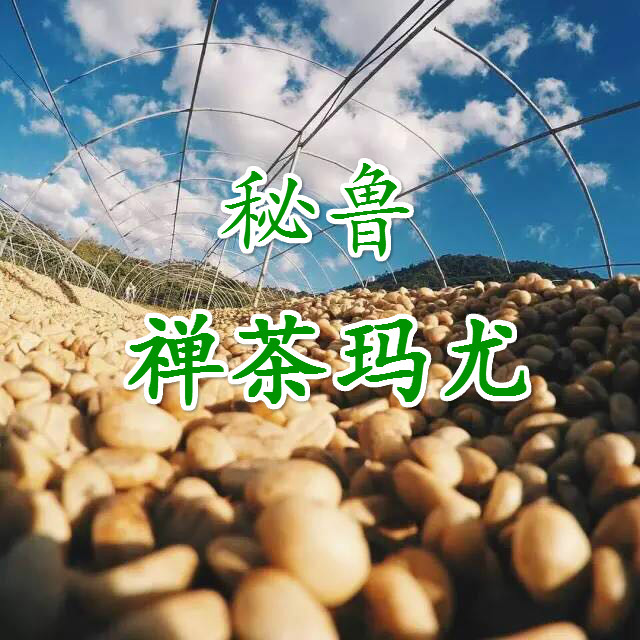
Organic Coffee Identification: several major certification organizations for organic coffee
Organic coffee is coffee that does not use synthetic pesticides, herbicides or chemical fertilizers during its growth. Natural methods are mainly used, such as natural composting of coffee peel, pulp, branches and leaves to maintain the growth of coffee trees, and pure natural biological control methods are used in pest control, such as planting protective trees. and the use of a variety of other natural farming techniques to ensure the health of coffee trees.
Organic coffee is grown in the shade, and although the yield of the method grown in the shade is not high, its quality can reach the level of gourmet coffee. This is because shading trees can slow down the ripening of coffee trees, give coffee full growth, and make it contain more natural ingredients, better taste and less caffeine. These ways of growing coffee help to maintain a healthy environment and keep the groundwater pure. The sustainability of land, water and natural ecological environment is an active concern of organic coffee practitioners.
Organic coffee
Major organic coffee certification organizations
1. USDA Organic Certification (USDA ORGANIC)
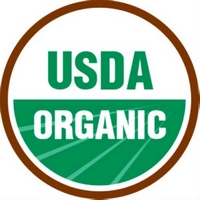
USDA Organic Certification Mark
The most authoritative organic certification in the United States is the USDA standard of the United States Department of Agriculture. USDA standards are extremely stringent, and products with USDA logos on their packages are officially certified to use 100% organic ingredients.
The specific standards for USDA are as follows:
Ingredients do not contain any chemical synthetic substances, such as fertilizers, pesticides, antibiotics, food additives and genetically modified animals and plants.
The soil grown with ingredients has not used chemical synthetic substances for at least three years.
Check production and sales records regularly
Maintain strict physical isolation of organic certified products
Production facilities for testing organic products
Products made entirely of organic ingredients can be labeled "100% organic" or use the USDA logo
Products that use more than 70% organic ingredients can be called "made from organic ingredients (Made with Certified Organic ingredient.)", but the USDA logo cannot be used.
two。 Rainforest Alliance Certification (Rainforest Alliance Certified)
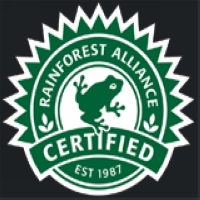
Rainforest Alliance Certification (Rainforest Alliance Certified)
Rainforest Alliance certification refers to a farm that meets the standards set by the Rainforest Alliance, which protects the farm and its surrounding ecosystems, restricts the use of pesticides, and evaluates benchmarks such as waste management. only coffee that has been evaluated and certified can be called "Rainforest Alliance certified coffee".
Among them, the certification benchmark for coffee stipulates that the traditional farming methods cultivated in the shade of primary forests are beneficial to the protection of ecosystems. Some of the proceeds from the alliance are also used for the protection of wildlife in tropical rainforest animal reserves and the improvement of workers' living standards.
For a farm that meets the benchmark set by the Tropical Rainforest Alliance, the Rainforest Alliance will evaluate the ecosystem protection, pesticide use restrictions, waste management and other benchmarks in and around the farm. Only coffee that has passed the benchmark and is certified, can be called "Tropical Rainforest Alliance certified coffee". In addition, part of the proceeds are also used for wildlife protection, labor life and well-being in tropical rainforest animal reserves.
3.UTZ Coffee Certification

UTZ Coffee Certification
UTZ is an independent organization that certifies all kinds of high-quality coffee in the world, covering every production step from coffee cultivation to roasting. The standards set by the organization specify how coffee is produced in a socially and environmentally responsible manner. Support to minimize the use of water, fertilizers and pesticides in the production of coffee. At the same time, give support to coffee farmers and strive to improve their productivity.
Important Notice :
前街咖啡 FrontStreet Coffee has moved to new addredd:
FrontStreet Coffee Address: 315,Donghua East Road,GuangZhou
Tel:020 38364473
- Prev
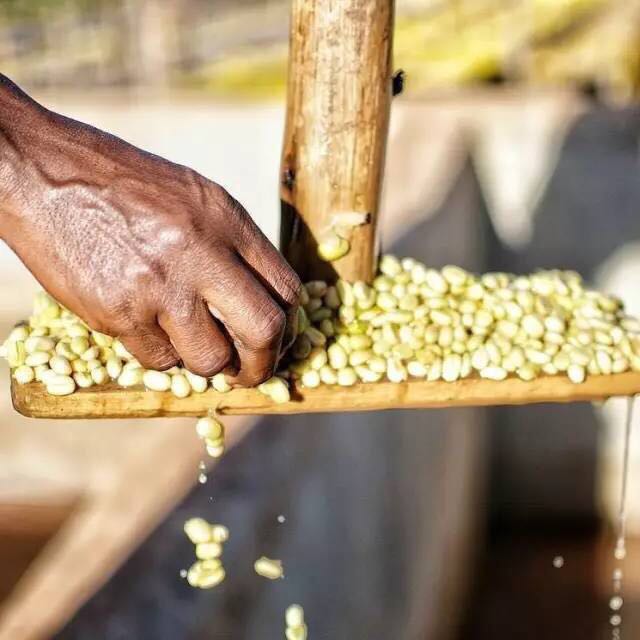
Peruvian Parkmanu Zen tea Mayou extremely low defect hazelnut cherry sweet boutique coffee ripe beans
Professional baristas please follow the coffee workshop (Wechat official account cafe_style) Peruvian Zen tea Mayo most of the Peruvian coffee is organic, mainly on small-scale farms, mostly grown at the foot of the Andes. Peru, with mountains accounting for 1% of the country's total area, belongs to a tropical desert region with a dry and mild climate. The average annual precipitation of 18-26 ℃ is mild 700~1500mm, which makes here
- Next
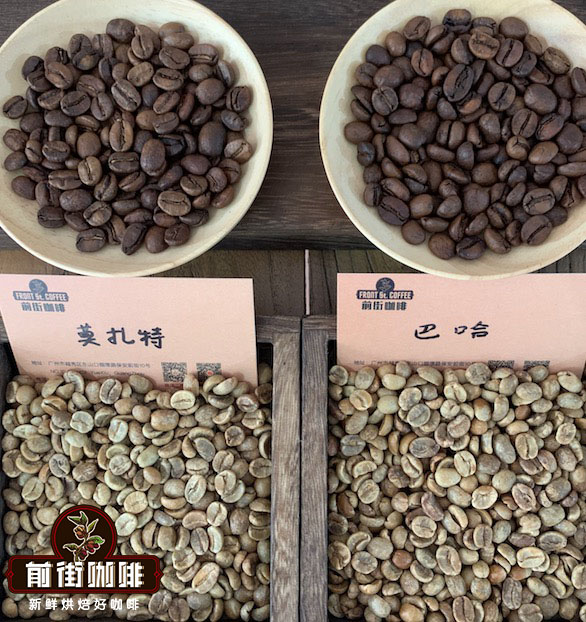
Costa Rican Carnett Manor musician Coffee Bean Grinding degree, Water temperature, Taste description
For the exchange of professional baristas, please pay attention to the product description of the coffee workshop (Wechat official account cafe_style) | carefully select 100% Arabica manor beans | with special baking curve, the aroma is highlighted and rich in layers, = Costa Rican Mozart |
Related
- Does Rose Summer choose Blue, Green or Red? Detailed explanation of Rose Summer Coffee plots and Classification in Panamanian Jade Manor
- What is the difference between the origin, producing area, processing plant, cooperative and manor of coffee beans?
- How fine does the espresso powder fit? how to grind the espresso?
- Sca coffee roasting degree color card coffee roasting degree 8 roasting color values what do you mean?
- The practice of lattes: how to make lattes at home
- Introduction to Indonesian Fine Coffee beans-- Java Coffee producing area of Indonesian Arabica Coffee
- How much will the flavor of light and medium roasted rose summer be expressed? What baking level is rose summer suitable for?
- Introduction to the characteristics of washing, sun-drying or wet-planing coffee commonly used in Mantenin, Indonesia
- Price characteristics of Arabica Coffee Bean Starbucks introduction to Manning Coffee Bean Taste producing area Variety Manor
- What is the authentic Yega flavor? What are the flavor characteristics of the really excellent Yejasuffi coffee beans?

